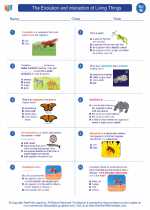Anthropology
Anthropology is the study of human beings, their evolutionary history, and their cultural, social, and physical development. It is a broad field that encompasses various sub-disciplines, including cultural anthropology, archaeology, biological anthropology, and linguistic anthropology.
Sub-disciplines of Anthropology
- Cultural Anthropology: This sub-discipline focuses on the study of contemporary human cultures and societies, including their beliefs, customs, and social organization.
- Archaeology: Archaeology involves the study of past human societies through the analysis of material culture, such as artifacts, structures, and environmental data.
- Biological Anthropology: Also known as physical anthropology, this sub-discipline examines the biological and physical aspects of humans, including their evolution, genetics, and variation.
- Linguistic Anthropology: Linguistic anthropology explores the role of language in human societies, including its structure, evolution, and cultural context.
Key Concepts in Anthropology
Culture
Culture refers to the shared beliefs, values, practices, and traditions that characterize a particular group of people. Cultural anthropologists study the diversity of human cultures and how they shape individuals and societies.
Evolution
Biological anthropologists investigate the evolutionary history of humans and their primate relatives, exploring topics such as adaptation, genetics, and the fossil record.
Fieldwork
Anthropologists often conduct fieldwork, which involves immersive research in a particular cultural or archaeological context. This method allows researchers to gain firsthand experience and insights into the lives of the people they study.
Study Guide
1. Readings
Read assigned texts and supplemental materials on the sub-disciplines of anthropology, including key theories, case studies, and methodological approaches.
2. Cultural Immersion
Engage in activities that allow you to learn about different cultures firsthand, such as attending cultural events, visiting museums, or participating in community-based programs.
3. Fieldwork Experience
If possible, seek opportunities to engage in fieldwork or ethnographic research to gain practical experience in anthropological methods and data collection.
4. Critical Analysis
Develop your critical thinking skills by analyzing and evaluating anthropological research, debates, and ethical considerations within the field.
5. Collaboration
Collaborate with peers to discuss and debate key anthropological concepts, research findings, and contemporary issues in anthropology.
.◂Science Worksheets and Study Guides Eighth Grade. The Evolution and interaction of Living Things

 Worksheet/Answer key
Worksheet/Answer key
 Worksheet/Answer key
Worksheet/Answer key
 Worksheet/Answer key
Worksheet/Answer key
 Vocabulary/Answer key
Vocabulary/Answer key
 Vocabulary/Answer key
Vocabulary/Answer key
